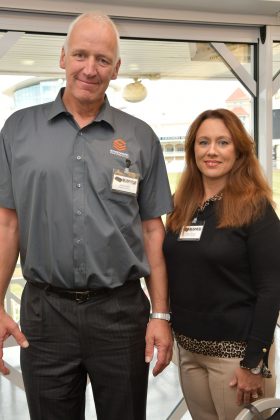
Responsible Business of the Year – sponsored by Wright Vigar
Winner
G F Tomlinson
Runners up
Scope Construction
Morrison Design

Deal of the Year – sponsored by Frank Key
Winner
Vaillant Live deal – St James Securities
Runners up
Built-to-rent deal at next phase of Derby Castleward regeneration – Lovell, Placefirst
Top Wighay deal – Vistry East Midlands

Residential Development of the Year – sponsored by Build Manager
Winner
Riber Castle – StudioTwenty
Runners up
Abbey Central – Stagfield Group & Peveril Homes
Prospect Place – TUNE

Commercial Development of the Year – sponsored by Global HSE Group
Winner
Canopy, Leicester – Henry Brothers
Runners up
Sherwood Observatory – G F Tomlinson
Homefield College SEND Building – Scope Construction
Vaillant Live – St James Securities

Contractor of the Year – sponsored by EMEC Ecology
Winner
Winvic Construction
Runners up
Goodward Construction
Miller Knight

Excellence in Design – sponsored by Konsileo
Winner
Sutton on Sea Colonnade and Pleasure Gardens – G F Tomlinson
Runners up
Loughborough University DigiLabs Teaching Space – APSS
Vaillant Live – St James Securities

Most Active Agent – sponsored by Knapton Wright
Winner
Salloway Property Consultants
Runners up
OMEETO
Rigby & Co

Developer of the Year – sponsored by Devello
Winner
Clowes Developments
Runners up
St James Securities
Vistry East Midlands

Sustainable Development of the Year – sponsored by Viridis
Winner
Nottingham College Construction Skills Centre (CSC) and The Gateway – G F Tomlinson
Runners up
Evo Corby – PBBE Corby BV, PineBridge
Rykneld Homes North East Derbyshire retrofit – Coactivation
Abbey Central – Stagfield Group & Peveril Homes

Architects of the Year – sponsored by Roy Geddes Bricks
Winner
Church Lukas
Runners up
Morrison Design
Pelham Architects

Overall Winner – sponsored by SEV
G F Tomlinson
To learn more about our finalists visit our showcase page!
See the event in the images below, taken by Richard Picksley.
Thanks to all our sponsors for supporting the East Midlands Bricks Awards 2025. Business Link Magazine looks forward to returning next year for the East Midlands Bricks Awards 2026!












Held at:



















































